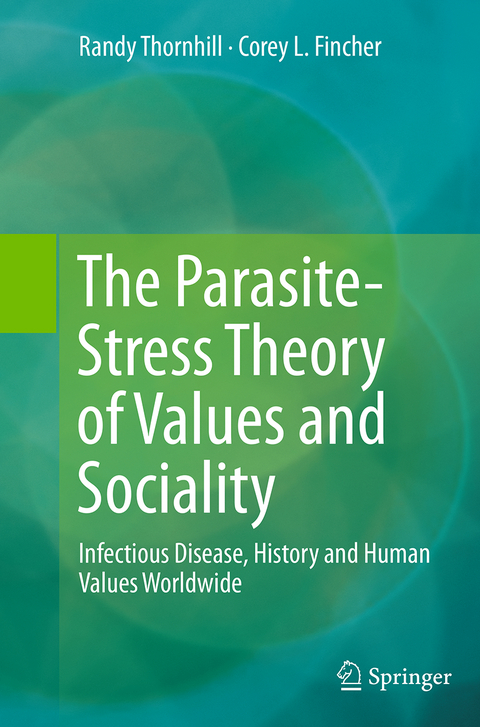
The Parasite-Stress Theory of Values and Sociality
Springer International Publishing (Verlag)
978-3-319-35659-4 (ISBN)
Randy Thornhill is Distinguished Professor of Biology at The University of New Mexico. Dr. Thornhill's 150+ published papers and four books on the evolutionary and ecological aspects of sociality and behavior have been cited over 17,000 times. He served as President of the Human Behavior and Evolution Society from 2011 through 2013. Corey L. Fincher is an Assistant Professor in the University of Warwick, U.K.'s Department of Psychology. The parasite-stress model emerged as a result of his and Thornhill's research, and the two researchers' publications since 2005 established this theory of sociality.
1. Background and Overview of the Book.- 2. Evolutionary Aesthetics, Values and Methodology.- 3. The Parasite-stress Theory of Values.- 4. Human Values Research Prior ro the Parasite-stress Theory.- 5.Collectivism-Individualism, Family Ties and Philopatry.- 6. Mating Systems, Mate Choice, Marriage, Sexual Behavior and Inbreeding.- 7. Personality.- 8. Interpersonal Violence.- 9. Religiosity.- 10. Democracy and Other Governmental Systems.- 11. Economics, Values and Cognitive Ability.- 12. Wars, Revolutions and Coups, and the Absence of Peace across the World.- 13. Biodiversity and the Parasite-driven Wedge.- 14. Reflections, Criticisms, and Future Research.
"The book might appeal to academics looking for an introduction to this research program, for example, psychologists, anthropologists, sociologists, or political scientists concerned with cultural differences and seeking an alternative perspective. ... The volume has much to offer for fans of consilience. ... The book also has much to offer for those skeptical of parasite stress having such encompassing effects on culture as well as for those skeptical of the psychological processes claimed to cause the cultural variation." (Florian van Leeuwen, The Quarterly Review of Biology, Vol. 91 (2), June, 2016)
| Erscheinungsdatum | 16.09.2016 |
|---|---|
| Zusatzinfo | XIX, 449 p. 12 illus. |
| Verlagsort | Cham |
| Sprache | englisch |
| Maße | 155 x 235 mm |
| Themenwelt | Naturwissenschaften ► Biologie ► Evolution |
| Schlagworte | Animal ecology • Behavioral Sciences • Behavioural theory (Behaviourism) • biodiversity • biological psychology • Biomedical and Life Sciences • Collectivism • disease ecology • Evolution • evolutionary biology • human values • Life sciences: general issues • Personality and Social Psychology • Physiological and neuro-psychology, biopsychology • Psychology: the self, ego, identity, personality • Religiosity • Social Psychology • Zoology and animal sciences |
| ISBN-10 | 3-319-35659-3 / 3319356593 |
| ISBN-13 | 978-3-319-35659-4 / 9783319356594 |
| Zustand | Neuware |
| Haben Sie eine Frage zum Produkt? |
aus dem Bereich


